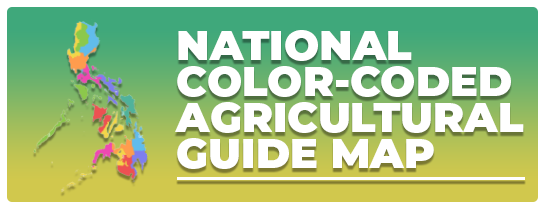Oton onion growers cultivate success through community empowerment
Posted by: RAFIS DA6 | Posted at: January 31, 2025
Onion production in the country embodies more than just agricultural practices, it represents a convincing journey of resilience, innovation, and sustainable growth, where challenges are overcome, modern techniques embraced, and a path towards lasting success is carved.
In Oton, Iloilo the Oton Bulb Onion Growers Association (OBOGA) is showing how strong teamwork can make a big difference, especially when things are tough, proving that when people work together, they can overcome any challenge.
The association was established in October 2017 with only 31 pioneering members. OBOGA was founded on the principles of camaraderie and shared purpose. OBOGA President Eduardo Tano reflects on the early days of the association with a sense of pride.
“We came together with a common goal, that is to secure a brighter future for our families. And our unity became our greatest strength,” Eduardo conveys.
The forefront of this united effort is Antonio Gajo, the Vice-President of OBOGA, whose passion for farming ignited a spark of inspiration within the community. Gajo, who wedded a local of Nueva Ecija, introduced onion cultivation to his fellow farmers, recognizing its potential as a sustainable and lucrative crop.
“Onions became more than just a commodity, they became a symbol of our shared aspiration. Our members united around this vision, laying the foundation for a thriving agricultural community,” Antonio explains.
The journey towards success, however, was not without its challenges. One of the challenges they have faced includes low prices and a lack of buyers for their onion products. They store them in hanger storage, which offers only a three-month shelf life, especially during periods of high production.
In year 2022 and 2023, the impact of Typhoon Paeng on onion growers was strongly felt by the Oton onion growers. The adverse weather conditions brought about by the typhoon severely hampered the cultivation and growth of onions, leading to a substantial decrease in production levels. The unfavorable weather conditions resulted in significant losses for the growers, as their ability to produce and harvest onions was severely compromised. The effects of the typhoon rippled through the agricultural sector, affecting not only the livelihoods of the growers but also the supply of onions in the market.
Climate change also emerged as a tough challenge to the association, threatening the livelihoods of farmers. Typhoons and the unpredictable weather patterns posed a constant threat to their crops, underscoring the need for resilience and adaptation.
Chairman Tano also recalled the devastation wrought by Typhoon Agaton, which struck just as they were preparing to harvest their onions.
“In those early days, every setback seemed impossible. But our unity remained unwavering, driving us forward in the face of adversity,” expresses Eduardo.
Amid the trials, OBOGA found strength in solidarity, forging partnerships with government agencies and private entities to bolster their efforts. The DA, under the leadership of then Secretary Emmanuel “Manny” Piñol, provided support through initiatives like the Production Loan Easy Access (PLEA) Program, granting members access to much-needed capital and resources. The OBOGA Vice-Chair emphasizes the significance of this collaboration. “It was a turning point in our journey towards prosperity.”
Antonio highlighted the utilization of DA interventions that their association had availed of. Having previously benefited from the PLEA Program, they were able to achieve a remarkable production of 15 metric tons per hectare, which they proudly touted as their highest yield. Furthermore, their proactive efforts enabled them to establish onion cultivation across their expansive 80-hectare area. It is noteworthy that, for the record, their lowest production per hectare stood at 5 metric tons.
Reflecting on the collective achievements of the association, the cumulative volume of production reached an impressive 800 metric tons, accounting for the cultivation of 80 hectares. Despite fluctuating market conditions, they maintained an admirable standard by setting the lowest selling price for their onions at P18 pesos per kilo. This dedication and efficiency translated into a substantial gross income for the association members, totaling P14.4-million. Such success not only underscores their resilience but also highlights the effectiveness of collaborative efforts and strategic utilization of government support programs.
The OBOGA received an initial start-up capital of P50,000 from the DA-Agribusiness and Marketing Assistance Division (AMAD) to facilitate trading activities under the Kadiwa program. This additional fund served as crucial trading capital, enabling the association to initiate its operations.
Recently, the DA-AMAD conducted monitoring activities and acknowledged the successful implementation of the project by the OBOGA. As a proof to their commendable performance, the DA-AMAD has committed to providing an additional P500,000 to support the trading activities of the association.
This substantial increase in funding signifies the confidence and recognition of the OBOGA’s efforts in promoting agricultural trade, not only for bulb onions but also for rice and other high-value commodities. Such continued support from the DA underscores the importance of fostering partnerships between government agencies and grassroots agricultural organizations to foster sustainable economic growth within the farming community.
Antonio highlighted the significant support the association has received from the DA over the span of eight years since its establishment. Through various interventions, including the provision of facilities and equipment, such as a four-wheel drive tractor, solar water pump, water pump with an engine, composting facilities, and quality seeds, the association has been empowered to enhance their onion cultivation practices.
Moreover, the DA facilitated capacity-building trainings for the members, which proved instrumental in expanding their knowledge base.
The association members benefited greatly from benchmarking trips organized by the DA Agricultural Training Institute (ATI) and DA Regional Office, where they gained insights from successful practices in Mindoro and the Ilocos Region.
In total, the support extended by the DA to OBOGA amounts to a substantial P3.15-million. This assistance, ranging from infrastructure to knowledge enhancement initiatives, has significantly boosted the capabilities of the association in onion cultivation. Such access to resources and expertise underscores the collaborative efforts between the government and grassroots organizations in promoting sustainable agriculture and rural development.
Looking ahead, OBOGA remains committed to fostering unity and cooperation within the agricultural community. Plans are underway to expand their operations, explore new markets, and invest in sustainable farming practices. Tano envisions a future where OBOGA serves as a model of solidarity and resilience for farmers across Iloilo province.
Among their future plans, OBOGA aims to prioritize continuous training opportunities for interested farmers, ensuring ongoing skill development and knowledge enhancement within their community. In addition, they seek to expand their operations by venturing into the processing of onions into onion powder, potentially opening new avenues for product utilization and market expansion.
The association also has set its sights on acquiring a cold storage facility, which would enable them to extend their trading reach to key markets such as Dumaguete, Palawan, and Cagayan. With access to cold storage, they can ensure the quality and freshness of their onions, thereby enhancing their competitiveness in these markets.
This infrastructure investment would also enable them to establish reliable partnerships with buyers, fostering long-term commitments and stable market relationships.
By pursuing these strategic initiatives, OBOGA aims to not only enhance the value chain of onion production but also to strengthen its position in regional markets, driving sustainable growth and prosperity for its members and the broader agricultural community.
In the near future, should the OBOGA receives support from the DA Farm Fisheries Clustering and Consolidation (F2C2) Program, they plan to enhance their onion production by investing in additional farm machinery and inputs aimed at improving productivity. This support would enable them to optimize their operations, implement advanced farming techniques, and increase overall efficiency in onion cultivation. By leveraging the resources provided through the F2C2 Program, OBOGA aims to further strengthen their position in the agricultural sector and contribute to the sustainable growth of their community. “Our journey is far from over. But as long as we stand united, there is no obstacle we cannot overcome,” the association Chairman affirms.
Meanwhile, the association vice-president stated, “We also encourage those who have not yet ventured into planting onions because cultivating onions is not just a business endeavor but a livelihood opportunity for their families.”
The OBOGA officers emphasized that their greatest assets are their unity and dedication, which they consider essential for their success. They believe that these qualities serve as their capital in navigating the challenges of onion farming.
Additionally, they underscored the importance of adhering to proper protocols and best practices in onion cultivation to ensure optimal results and sustainability.
s the sun sets over the fields of Oton, casting a warm glow upon the ripening onions, the spirit of unity and camaraderie shines brightly. In the hands of OBOGA, the seeds of hope continue to flourish, promising a harvest of prosperity for generations to come.
Despite challenges in onion farming, the OBOGA prioritizes unity, viewing it as essential for current success and future government support. “It has always been our advocacy for both members and officers of OBOGA to unite. This unity is vital for securing better government interventions in the future. Our primary goal is to provide assistance and support to our members,” highlights Antonio.
He stressed the need for officers to lead by example, recognizing that their unity sets the tone for the entire association. Despite the demanding nature of their livelihoods, they dedicate time to OBOGA, understanding that any faltering in leadership could lead to member disarray.
“We assist each other to foster unity within OBOGA. Despite our challenges, we stand united, ready to address any issues together. This unity is the cornerstone of our strength and resilience as an association,” Eduardo underscores. ###
Texts and Photos by: Myleen S. Subang/DA-RAFIS 6












